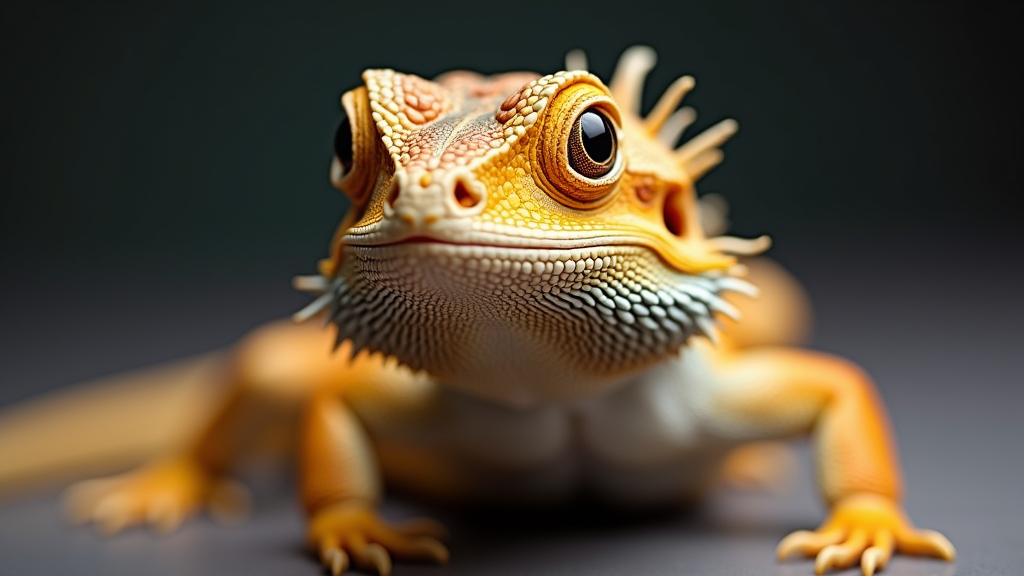Eye Issues in Bearded Dragons: What Every Owner Needs to Know
Introduction
Owning a bearded dragon can be an incredibly rewarding experience, but like any pet, they come with their own set of health challenges. One common area of concern is eye issues in bearded dragons. Whether you’re a new owner or have had your scaly friend for years, understanding these problems is crucial for their well-being. In this blog post, we’ll delve into the most common eye issues, their causes, and how to address them effectively. Let’s ensure our little reptilian companions remain healthy and happy!
Common Eye Issues in Bearded Dragons
Corneal Damage
Corneal damage is one of the most frequently occurring eye issues in bearded dragons. This condition can manifest due to a variety of reasons, from accidental scratches to irritants in their environment.
Causes
- Scratches: Bearded dragons are curious creatures and may occasionally scratch their corneas while exploring.
- Foreign Objects: Sand, loose substrate, or tiny debris can get into their eyes, causing irritation.
- Chemical Irritants: Improper cleaning agents or fumes from sprays can also contribute to corneal damage.
Symptoms
- Cloudiness or opacity in the eye
- Excessive tearing
- Swollen eyelids
Treatment
For mild cases, a saline rinse can help clear out debris. However, if the condition persists or seems severe, it’s best to consult a vet.
Vitamin A Deficiency
Vitamin A deficiency, also known as Hypovitaminosis A, can cause significant eye issues in bearded dragons. It’s typically due to poor diet lacking in essential nutrients.
Causes
- Diet: Insufficient vegetables and fruits in their diet can lead to a vitamin A deficit.
- Poor Absorption: Even with an adequate diet, some dragons may have difficulty absorbing vitamin A.
Symptoms
- Swollen eyes or eyelids
- Loss of appetite
- Lethargy
Treatment
A balanced diet rich in vitamin A can often rectify this issue. Foods like carrots, sweet potatoes, and leafy greens are excellent sources. In severe cases, your vet may recommend vitamin supplements or injections.
Eye Infections
Eye infections are another common problem, usually caused by bacteria, fungi, or parasites.
Causes
- Bacteria: Dirty habitats can foster bacterial growth leading to infections.
- Fungi: Moist and unhygienic conditions may encourage fungal infections.
- Parasites: External parasites like mites can also infect eyes.
Symptoms
- Redness and swelling
- Discharge or crust around the eyes
- Rubbing eyes with their head or feet
Treatment
Keeping their habitat clean and dry is essential. For infections, a veterinary diagnosis is vital as they can prescribe the necessary medications, be it antibiotics or antifungal treatments.
Preventative Measures
Regular Cleaning
Maintaining a clean and hygienic habitat is the first line of defence against eye issues. Ensure the tank is cleaned regularly, and any waste is promptly removed.
Balanced Diet
A varied and balanced diet is key to preventing nutritional deficiencies such as Hypovitaminosis A. Incorporate a mix of vegetables, fruits, and protein to meet their dietary needs.
Health Monitoring
Regular health checks play a crucial role in early detection and treatment of eye issues. Look for signs of distress or abnormalities in their eyes and act promptly.
When to See a Vet
Oftentimes, eye issues can escalate quickly if untreated. While some minor issues can be managed at home, it’s essential to consult a vet for persistent or severe symptoms. Remember, professional advice is indispensable when it comes to the health of your bearded dragon.
Conclusion
Eye issues in bearded dragons can be troubling, but with vigilant care and prompt intervention, they can often be managed effectively. By ensuring a clean habitat, a nutritious diet, and regular health checks, you’ll be well on your way to safeguarding your bearded dragon’s eye health. For more insights into bearded dragon care, you might want to check our comprehensive guide or explore products for reptile health on Amazon.
Meta Description
Discover the most common eye issues in bearded dragons, their causes, symptoms, and treatments. Learn preventive measures to keep your pet’s eyes healthy and when to seek veterinary help.
Keep those eyes peeled (quite literally) and happy herping!

